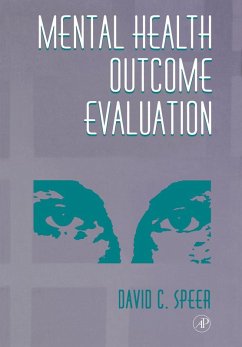Mental Health Outcome Evaluation bridges the gap between traditional research and evaluation methods by presenting an alternative to the highly technical and statistical methods developed in the laboratory for mental health care professionals. It focuses on outcome evaluation of mental health services for adults, concentrating on the general principles that can be used to assess the service effectiveness of community health centers, clinics, and private practices. The book presents a formidable argument for descriptive outcome studies through its evaluation of the results and consequences of care and treatment as well as clinician ratings. It is written in a non-technical style, making it accessible to anyone in the mental health industry.
- Addresses industry efforts to monitor and assess information about results and consequences of mental health care and treatment
- Evaluates use of clinician ratings as outcome information
- Offers accessible general principles for managers and mental health services researchers
- Presents the best argument for descriptive outcome studies
Dieser Download kann aus rechtlichen Gründen nur mit Rechnungsadresse in A, B, BG, CY, CZ, D, DK, EW, E, FIN, F, GR, HR, H, IRL, I, LT, L, LR, M, NL, PL, P, R, S, SLO, SK ausgeliefert werden.









